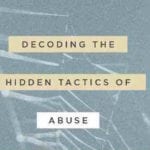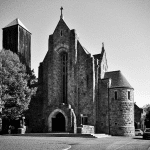About five minutes drive from where I am writing this, a tragic event happened here in Sydney.
Around 8pm, on Febraury 1st, 2020, a drunk driver veered-off the road, mounted the footpath and ploughed into a family out walking to get an ice cream at the end of a very hot Sydney day.
His reckless action left four—three siblings from one family along with one of their cousins—dead. Another child remains in hospital.
I can’t imagine how I would respond if that happened to my children. I know how I would like to respond now, with all the clarity of a ring-fenced third party but to be in the middle of that? What would I say? What would you?
On Sunday all the news was, understandably, about the sheer horror of this event … And then there was a shift. Leila Abdallah, the mother, stood up and declared that she and her husband forgave the driver.
But something remarkable has happened. On Sunday all the news was, understandably, about the sheer horror of this event, the speed with which it happened, the traumatic scene encountered by the first responders. Online comments on news stories were full of expressions of outrage and a flurry of condemnation.
Lock him up and throw away the key
Let him burn in hell.
And then there was a shift. There was a new story. Leila Abdallah, the mother of those three precious lives stood up in front of the cameras and declared that she and her husband forgave the driver. On the Friday she and her husband released an even clearer statement:
We forgive the driver that killed our innocent children. His actions will be met before the earthly and heavenly judge. We have decided, in our hearts to forgive him—for our sake, for the sake of our children and more so for Christ’s sake.
Our faith in Jesus Christ remains the foundation of our family and we believe it will continue to help us through this difficult time. Each day that passes is a day closer to the day we are reunited with our angels. We will look toward this moment; not backwards at yesterday’s pain.
As we’ve tried to make sense of the past week, the world too has been shaken by this mortifying event. It is our hope that through this, all will know that no matter the pain or despair, God will be a safeguard through this dark valley. He is in control, and eternity sits in the palm of His divine hand.
Our life here on earth is but a vapour in comparison to His eternal plans, and the purpose God holds for His children.
The Abdallah’s were Lebanese (Maronite Catholic) Christians. They expressed themselves in ways that are unfamiliar to protestants. There are some things that they said that I wouldn’t. But when I heard and read Leila’s words, I had no doubt that she and I shared the same basic way of looking at the world: a way that is all about Jesus.
Supernatural Grace
The death of Jesus is what has produced an entirely supernatural response to the death of her dear children. She saw in the Cross companionship, control and compassion.
In Jesus’ death, she sees companionship. As she put it in a television interview:
… you all know about Christianity and you all know about how Jesus died on the Cross … I feel like I’m walking the Stations of the Cross.
For Christians, there is no suffering that God does not know—that Jesus hasn’t experienced first. His walk to the Cross is an example for everyone that follows him, the one that empathises with all our weaknesses (Heb. 4:15).
In the cross there is control. As she wrote in her statement: “[God] is in control, and eternity sits in the palm of His divine hand”—and again in here interview—“I know nothing happens unless God wants it to happen.”
At the Cross we see that God is control of everything, even the most barbaric crimes (Acts 4:27-28). The Cross shows us that God is also more than capable of using the most terrible evil and tragedy to his own very good purposes. Simplistic views of God capsize when faced with a storm like this. They cannot imagine how God would not just seek the removal of suffering everywhere.
The Cross shows us that God is also more than capable of using the most terrible evil and tragedy to his own very good purposes. Simplistic views of God capsize when faced with a storm like this.
But simplistic views of God don’t include the Cross where God used the greatest suffering to bring about the most wonderful outcome. He is not impotent—though we can’t always see how he will use them (although I suspect we can see one way in the power of the Abdallah’s gracious testimony).
Finally, and most striking of all, the Cross bring compassion:
We have decided, in our hearts to forgive him—for our sake, for the sake of our children and more so for Christ’s sake.
That’s amazing. That’s quite incredible. She had every reason to pour out every foul word and curse upon that man. He was, it appears, more than three times over the legal limit. Who could have a good word to say about someone like that? And yet from the lips of the person most justified in demanding vengeance there was forgiveness. More than that, there was the struggle to forgive, the desire to forgive, the yearning to be defined by forgiveness.
‘We have decided, in our hearts to forgive him for Christ’s sake.’ … from the lips of the person most justified in demanding vengeance there is forgiveness; the struggle to forgive, the desire to forgive, the yearning to be defined by forgiveness.
Of course, at the same time, Abdallah called for justice. For things to be fair. There is, however, a place for justice. But let someone else worry about that. God will sort it all out one day (Rom. 12:19) and, in the meantime, he has established governments with their own judicial systems to provide a temporal solution (Rom. 13:4). There is a place for locking someone up but not throwing away the key.
And yet there is still personal forgiveness. Danny and Leila Abdallah were shaped by the mercy displayed at the Cross (Rom. 12:1)—by a gospel that urges us to forgive those who harm us (Rom. 12:17) because we ourselves have been forgiven. We can’t ask for other people to burn in hell when we understand that we ourselves have been rescued from those flames.
Companionship, control, compassion. Three entirely alien comforts that you cannot know unless your mind is shaped by the Cross of Jesus.
Which leaves me with one niggling thought. Leila Abdallah, in her TV interview spoke of how “ … you all know about how Jesus died on the Cross.”
Unfortunately we don’t all know about how Jesus died on the Cross. As a culture we have pushed Jesus and his Cross aside. We don’t know about the companionship of the Cross in suffering. We don’t know about the control of the Cross where we see God is in charge of everything. Most of all we don’t know about the compassion of the Cross. We live in such a brutal unforgiving time.
Lock him up and throw away the key?
Let him burn in hell?
Not if our mind is shaped by the Cross. The Christian worldview—knowing Jesus himself—changes everything.
And earlier version of this post was published at davidould.net















